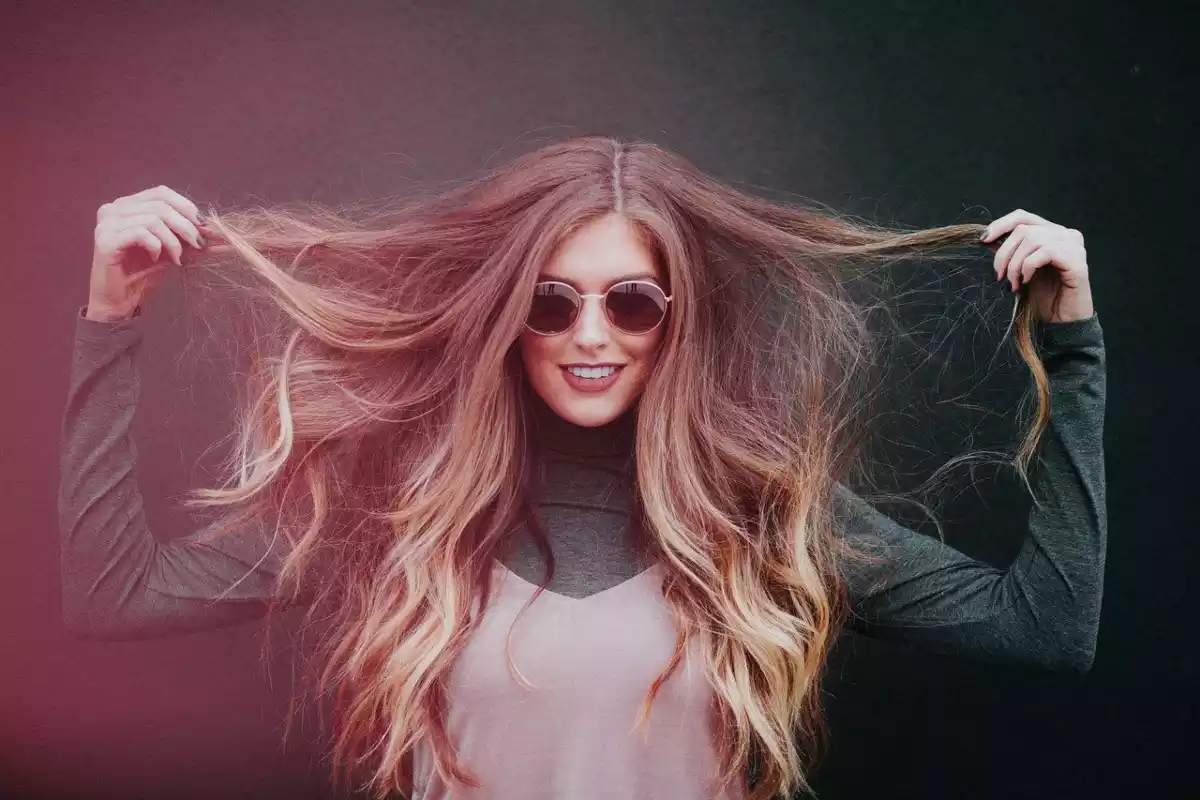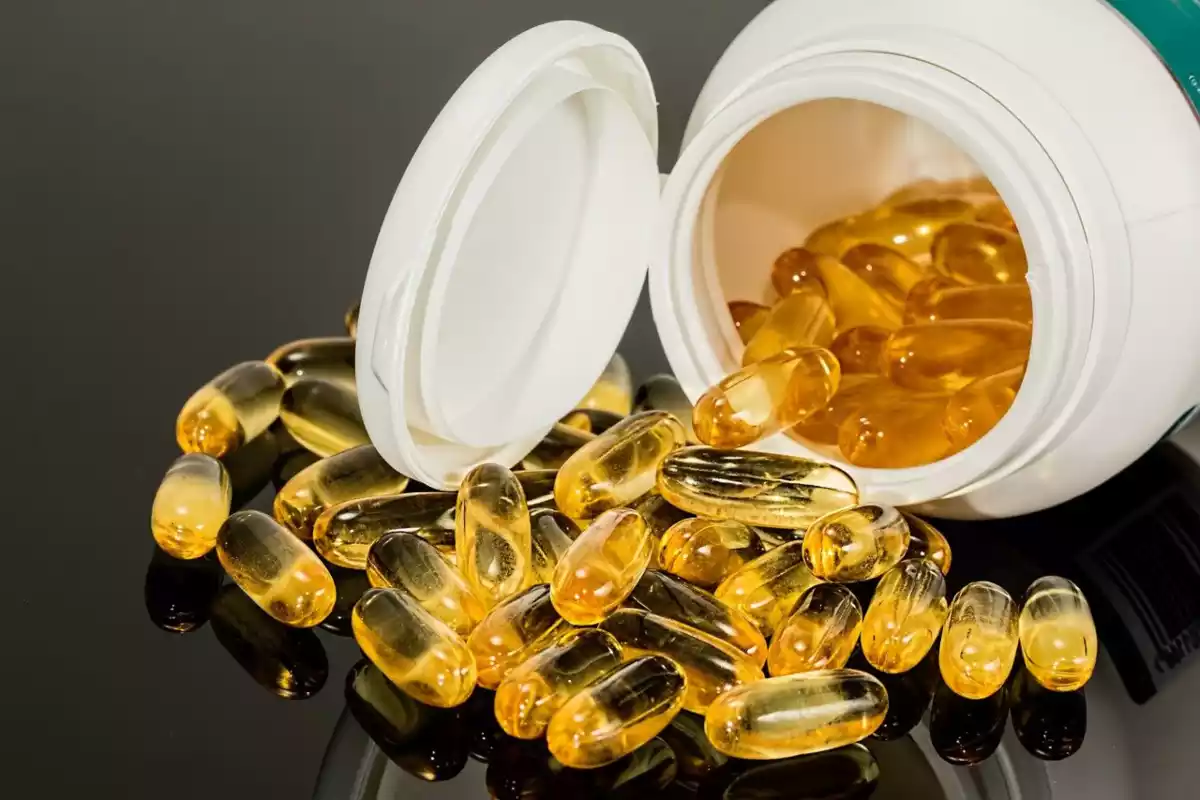We love bragging about having healthy hair. Hair, like any other part of our body, needs a variety of nutrients to be healthy and grow. Many nutritional deficiencies are related to hair loss. While factors such as age, genetics, and hormones also affect hair growth, optimal nutrient intake is key to keeping hair in good condition. Below we explain which vitamins are essential to enjoy healthy hair and strengthen its growth.
What vitamins are good for hair growth?
Having vitamins, minerals and nutrients deficiency can affect not only the appearance of our hair but also its health, getting worse and causing its loss. For this reason, it is very important to maintain a balanced diet and eat properly for hair growth, without forgetting to consume all the important elements to maintain the health of our hair. Vitamins such as A, B6, B12, folic acid and biotin along with minerals such as iron, copper, sulfur, magnesium, silicon, iodine and zinc are the essential nutrients we must introduce into our diet if we want to have strong hair and a healthy scalp.
In addition to these recommendations, it is also important to maintain good hydration, not only of the hair but also of our whole body. However, there are a number of foods that we should avoid, such as sausages, processed foods, ice cream, fried foods and those with excess fat. Alcohol is also an enemy of good hair health.
It should also be borne in mind that stress attracts us to foods rich in salt and sugar, as well as those with a high glycemic index, the excess of which contributes to hair loss. Below we have more details on how each vitamin influences our hair and how we can prevent its loss and promote its good condition.
1. Vitamin A
All cells need vitamin A to grow. This includes hair, the fastest growing tissue in the human body. It also helps the skin glands produce an oily substance called sebum, which moisturizes the scalp and helps keep hair healthy. Diets deficient in vitamin A can cause a number of problems, including hair loss.

While it's important to get enough, too much can be dangerous. Studies have shown that a high intake of this type of vitamin can also contribute to hair loss. Sweet potatoes, carrots, pumpkins, spinach, and kale are high in beta-carotene, which is later converted into vitamin A. It can also be found in animal products such as milk, eggs, and yogurt.
2. Vitamin B
One of the best-known vitamins for hair growth is a type of B vitamin called biotin. Research links biotin deficiency to hair loss in people. Many hair growth products and treatments incorporate biotin. They work best in people who have a lack of this vitamin. However, the deficit is rare, as we usually get it from a wide variety of foods.
Other B vitamins help create red blood cells that carry oxygen and nutrients to the scalp and hair follicles. This process is also very important for hair growth. We can get vitamin B from many foods, such as cereals, almonds, meat, fish, seafood and dark green leafy vegetables. Moreover, foods of animal origin are the only good sources of vitamin B12. Therefore, if you are on a vegetarian or vegan diet, you may need to take a vegetarian or vegan supplement.
3. Vitamin C
Free radical damage can block the growth and cause our hair to age. Vitamin C is a powerful antioxidant that helps protect against oxidative stress caused by free radicals. Besides, our body needs vitamin C to create collagen, a very important protein for hair structure. This vitamin also helps the body absorb iron, a mineral needed for hair growth. Strawberries, peppers, guavas and citrus fruits are a good source of vitamin C.
4. Vitamin D
According to studies, low levels of vitamin D are related to alopecia, the technical term for hair loss. These investigations have also shown that vitamin D can help create new follicles, small pores in the scalp where new hair can grow.
Most people don't get enough vitamin D, so it may be a good choice if we take supplements. Our body produces vitamin D through direct contact with the sun's rays. Good food sources of this vitamin include fatty fish, mushrooms, and foods enriched with it.
5. Vitamin E
Similar to vitamin C, vitamin E is an antioxidant that can prevent oxidative stress and is a great vitamin for hair. In one study, people with hair loss experienced a 34.5% increase in hair growth after being supplemented with vitamin E for 8 months. Sunflower seeds, almonds, spinach, and avocados are good sources of vitamin E.

Minerals for hair
Apart from vitamins, other important components for the well-being of our hair are minerals:
- For example, iron helps red blood cells carry oxygen to our cells. This makes it an important mineral for many body functions, including hair growth.
- Iron deficiency, which causes anemia, is a major cause of hair loss. It is especially common in women.
- Foods rich in iron are clams, oysters, eggs, red meat, spinach, and lentils.
- Zinc also plays an important role in the growth and repair of hair tissue. Furthermore, it helps keep the sebaceous glands around the follicles working properly.
- Foods rich in zinc are oysters, beef, spinach, wheat, pumpkin seeds, and lentils.
Should I take hair supplements?
Food is the best source of the vitamins we need for hair growth. However, if we don't get enough through our diet, supplements can be helpful. Studies show that supplements work best in people who are deficient in any of these vitamins. Therefore, if we do not lack them, it is not necessary to take supplements.
Besides, consuming large doses of vitamins and minerals can be harmful if we are not deficient. For this reason, it's a good idea to see your doctor to discover if you need supplements. The best way to get these nutrients is to have a real food-based diet that includes many nutrient-rich products.
There are also different treatments for hair loss and health. One of the most popular is Priorin, capsules made from biotin, vitamin B5, millet extract and L-Cystine. All these components contribute to maintaining healthy hair, having a strong root, preventing hair loss and maintaining shine and volume.
Check out the original article: Vitaminas para el pelo: tipos y para qué sirve cada una at viviendolasalud.com

